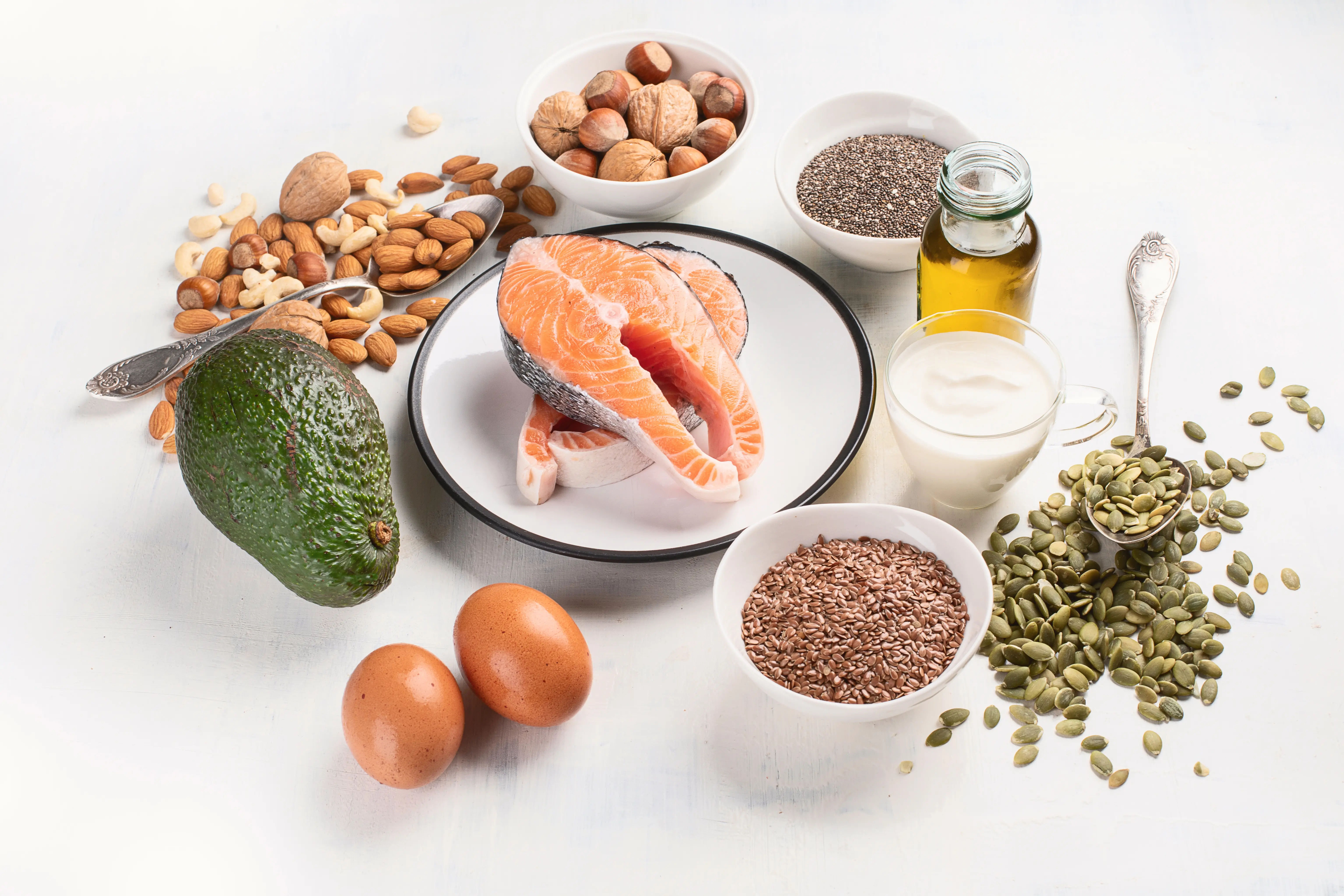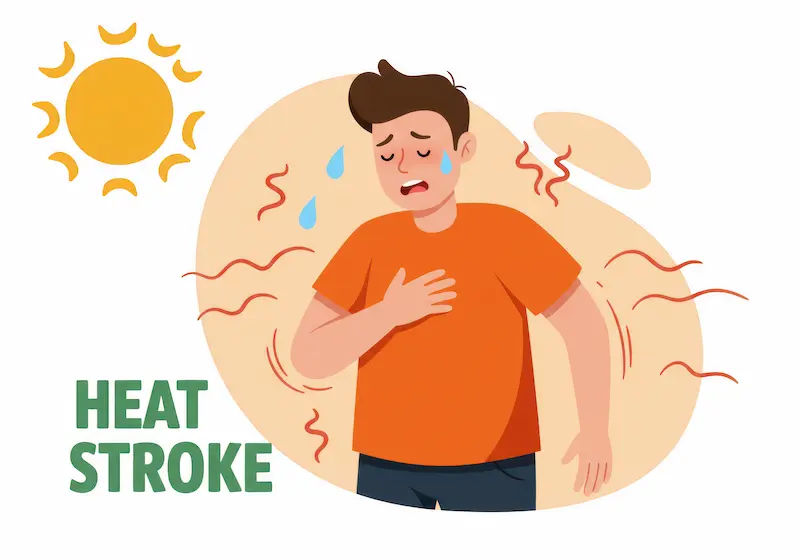Guide to Home Remedy For Tonsilitis
Quickly soothes a sore throat! Discover the 7 best natural home remedies for tonsillitis relief, from saltwater gargles to herbal teas. Stop the pain today.

Written by Dr. M L Ezhilarasan
Reviewed by Dr. Rohinipriyanka Pondugula MBBS
Last updated on 13th Jan, 2026

Introduction
Sore, swollen tonsils can make swallowing feel like a chore—and if you’ve typed “home remedy for tonsillitis" at 2 a.m., you’re not alone. The good news: many cases are caused by viruses and improve with supportive care. The better news: there are simple, evidence-informed steps you can take at home to soothe pain, stay hydrated, and recover faster—while knowing exactly when home care isn’t enough. In this guide, we’ll explain what tonsillitis is, how to tell viral from bacterial signs, and which natural remedies are most helpful. You’ll get a clear 48-hour plan, safe options for children and pregnancy, and a checklist to build your own "tonsillitis remedy kit.” We’ll also dispel common myths (like undiluted apple cider vinegar) and flag danger signs that mean you should see a doctor. If symptoms persist beyond a few days or you suspect strep, early medical advice makes a real difference. Let’s get you from raw-throat misery to calm, comfortable recovery—step by step.
What Is Tonsillitis? Viral vs Bacterial Basics
Tonsillitis means inflammation of the tonsils, two lymphoid tissues at the back of your throat that help your immune system filter germs. Most cases are viral (for example, due to common cold viruses), which typically improve with rest and supportive care. A smaller portion is bacterial—most notably group A Streptococcus (GAS), which we often call “strep throat.” Strep throat is important to identify because antibiotics shorten illness, reduce complications, and limit spread.
Is tonsillitis contagious?
Yes—both viral and bacterial forms can spread via respiratory droplets and close contact, especially in schools, offices, and households. Avoid sharing utensils, cups, or toothbrushes. Handwashing, masking if you must be in close contact while ill, and staying home when feverish all reduce transmission.
Common symptoms to recognize
• Sore throat and painful swallowing
• Red, swollen tonsils; sometimes white patches or exudate
• Swollen, tender lymph nodes in the neck
• Fever, headache, fatigue, bad breath
• In strep, cough is often absent; in viral infections, cough and runny nose are more common clues
Red flags that require urgent medical care
Seek urgent care if you have any of these:
• Difficulty breathing, drooling, and inability to swallow fluids
• Severe one-sided throat pain, “hot potato” voice, or jaw locking (trismus)
• Persistent high fever, rash, or dehydration
• Severe symptoms lasting more than 3–5 days, or recurrent episodes
These features can indicate complications like a peritonsillar abscess or a different diagnosis that needs prompt treatment. If symptoms persist beyond two weeks, consult a doctor online with Apollo 24|7 for further evaluation.
Consult a Top General Physician
How Home Remedies Fit In (and When They Don’t)?
Most mild to moderate cases—especially when accompanied by cough or runny nose—are viral and respond to home care. Your main goals are pain relief, hydration, rest, and avoiding irritants. Home remedies can reduce throat irritation and make eating/drinking easier so your body can heal.
When self-care is appropriate?
• Mild to moderate soreness, low-grade fever, and otherwise stable condition
• You’re able to swallow fluids and stay hydrated
• No severe red flags (trouble breathing, drooling, trismus)
• Symptoms improving within 48–72 hours
When to see a doctor (and what to expect)?
See a clinician if you have: severe pain, high fever, no improvement after 3–5 days, known exposure to strep, or repeated episodes. A clinician may perform a rapid strep test and/or throat culture to confirm GAS. If positive, antibiotics are prescribed to reduce complications and contagiousness. For marked throat swelling or severe pain, short-course steroids may be considered in select cases under medical supervision.
Rapid access: online consults and local clinics
If your condition does not improve after trying these methods, book a physical visit to a doctor with Apollo 24|7. For suspected strep, a throat swab is needed in the clinic. If your clinician recommends additional labs for general health, Apollo 24|7 also offers convenient home collection for routine tests as advised.
Evidence-Backed Home Remedies That Soothe
Warm saltwater gargles: how to do them correctly
• A classic home remedy for tonsillitis, warm saline gargles can temporarily reduce throat swelling and loosen mucus. Mix 1/4 to 1/2 teaspoon of table salt in 1 cup (240 ml) of warm water. Gargle for 15–30 seconds, spit, and repeat 2–3 times per session, up to 3–4 times daily. NHS and other national health services recommend this approach for sore throat symptom relief. It’s safe for adults and older children who can gargle reliably.
Hydration and soothing fluids (broths, teas)
• Staying well-hydrated thins secretions, keeps mucosal surfaces moist, and eases swallowing. Try warm broths, caffeine-free teas, or simply warm water with a squeeze of lemon (if tolerated). Cool options like diluted juices or ice water help if heat feels irritating. Aim for pale-yellow urine as a hydration indicator. Consider electrolyte drinks if you’re eating less.
Honey, herbal teas, and lozenges: what helps, what to avoid
• Honey can coat the throat and soothe irritation. Avoid honey in children under 1 year due to botulism risk. For older kids and adults, add 1–2 teaspoons to warm tea. While evidence for honey is strongest in cough relief, many patients report subjective throat comfort.
• Herbal teas such as chamomile or ginger tea can be soothing; avoid very spicy or acidic options if they burn.
• Lozenges can stimulate saliva and include ingredients like menthol. Avoid benzocaine-containing products in young children due to choking and rare methemoglobinemia risks; follow age labels carefully.
Humidifiers, steam, and rest: easing throat dryness
• Dry air aggravates sore tonsils. A cool-mist humidifier in your room, especially overnight, may reduce dryness and discomfort. Regularly clean your device to prevent mold. Brief warm showers or inhaling steam can temporarily ease throat irritation. Rest supports immune recovery—prioritize sleep and short rest breaks during the day.
Cold therapy: ice chips, popsicles, and soft foods
• A cold can numb pain and reduce swelling. Suck on ice chips or try low-sugar popsicles. Choose soft foods like yogurt, oatmeal, applesauce, and blended soups to avoid mechanical irritation. Avoid cigarette smoke, alcohol, and very spicy foods during recovery.
OTC pain relief: acetaminophen vs ibuprofen (with caveats)
• Both acetaminophen (paracetamol) and ibuprofen reduce fever and pain. Ibuprofen may provide slightly stronger anti-inflammatory relief, but either is reasonable—choose based on your health history and what you tolerate. Avoid NSAIDs late in pregnancy and in those with certain kidney, GI, or cardiovascular conditions. Never give aspirin to children or teens due to Reye’s syndrome risk. If pain remains severe despite correct dosing, consult a doctor.
Remedies to Avoid or Use With Caution
Aspirin in children, benzocaine sprays, and undiluted essential oils
• Aspirin: Do not give to children or teenagers due to the risk of Reye’s syndrome.
• Benzocaine: Avoid in young children; use age-appropriate products and follow labels carefully.
• Essential oils: Do not ingest or apply undiluted oils to the throat; ingestion can be toxic, and topical use can burn mucosa.
Apple cider vinegar, colloidal silver, and other risky trends
• Undiluted apple cider vinegar can damage tooth enamel and irritate or burn throat tissue. Colloidal silver has no proven benefit for tonsillitis and poses risks of toxicity and permanent skin discoloration (argyria). Skip “miracle cure” claims and stick with supportive care that is safe and recommended by major health bodies.
Your 48-Hour Home Care Plan
Morning, midday, and evening steps
• Morning: Warm saltwater gargle; a warm beverage with honey if age-appropriate; acetaminophen or ibuprofen if needed. Soft breakfast like yogurt or oatmeal. Humidifier on while you rest.
• Midday: Hydration check. Alternate warm tea and cool water. Gargle again if sore. Light lunch—soup or blended smoothie. Short nap or quiet time.
• Afternoon/evening: Another gargle. Ice chips or popsicles. Continue pain reliever if needed. Gentle stretching or a warm shower for comfort. Early bedtime with a humidifier.
• Throughout: Avoid smoking, alcohol, and shouting. Wash your hands frequently and don’t share utensils.
If you’re caring for a child, ensure age-appropriate options: no honey under 1 year; avoid small lozenges or hard candies that pose choking risks.
When to pause home care and escalate?
If you develop a high fever, can’t swallow fluids, have severe one-sided pain or voice changes, or symptoms don’t improve within 3–5 days, see a clinician. If symptoms persist beyond two weeks, consult a doctor online with Apollo 24|7 for further evaluation.
Special Populations and Situations
Children with tonsillitis: safe options and dosing tips
• Hydration, rest, humidified air, and age-appropriate analgesics are the core.
• No honey if under 1 year; caution with lozenges due to choking risk.
• Weight-based dosing for acetaminophen/ibuprofen is essential—use a proper syringe/spoon and follow labels. Consult a pediatrician for dosing if unsure.
• Seek care sooner for high fevers, drooling, or reduced fluid intake. Kids can deteriorate faster, so don’t wait on red flags.
Pregnancy and breastfeeding: what’s safe, what’s not
• Acetaminophen is generally preferred for pain/fever; avoid NSAIDs in the third trimester unless advised by your doctor.
• Stick to mild teas (e.g., chamomile) and avoid high-dose herbal supplements due to limited safety data.
• Focus on rest, hydration, and humidified air. If you suspect strep, seek testing—untreated GAS is not advised in pregnancy.
Chronic tonsillitis and tonsil stones (tonsilloliths)
• Recurrent sore throats with bad breath and tonsil crevices may indicate stones—collections of debris and bacteria.
• Gentle saltwater gargles and good oral hygiene can help. Avoid aggressively picking at tonsils to prevent injury.
• Frequent infections or significant quality-of-life impact may warrant ENT evaluation. Tonsillectomy is considered in select recurrent or obstructive cases.
Prevention and Strengthening Your Throat Defenses
Hygiene, avoiding spread, and vaccinations
Handwashing, covering coughs, and staying home when febrile reduces spread. Don’t share utensils. Annual flu vaccination (and staying current on COVID-19 vaccines) reduces viral infections that can inflame tonsils.
Diet, probiotics, oral care, and sleep
A balanced diet rich in fruits and vegetables, adequate protein, and regular sleep supports immune function. Probiotics may have modest benefits for upper respiratory infection frequency in some studies, but results are mixed; they’re not a substitute for core prevention. Daily brushing, flossing, and tongue cleaning reduce oral bacterial load and may help with tonsil stone prevention.
Allergies, reflux, and environmental triggers
Treat allergic rhinitis and postnasal drip to limit chronic throat irritation. Manage reflux (GERD) with smaller meals, avoiding late-night eating, and elevating the head of the bed if needed. Avoid smoke exposure and very dry air.
When Treatment Requires More Than Home Care?
Strep testing, antibiotics, and expected recovery
Rapid antigen testing and/or throat culture confirm group A strep. If positive, antibiotics (e.g., penicillin or amoxicillin) reduce symptom duration, contagiousness, and complications like rheumatic fever. You’re typically less contagious after 24 hours of antibiotics and can consider returning to school/work when fever-free and improved [2][4]. For accurate diagnosis and a prescription if appropriate, you can book a physical visit to a doctor with Apollo 24|7.
Complications to know: peritonsillar abscess
This deep infection creates severe one-sided throat pain, drooling, “hot potato” voice, and difficulty opening the mouth. It requires urgent evaluation, drainage, and antibiotics. Don’t try home remedies if you suspect this—go to urgent care or emergency services.
When is tonsillectomy considered today?
Surgery is reserved for specific situations: frequent, documented infections; sleep-disordered breathing/obstructive symptoms; or persistent complications. Your ENT will use standardized criteria (e.g., number of episodes per year) to guide the decision.
Myth vs Fact: Clearing Confusion About Home Remedies
Garlic, turmeric, and other internet favorites—what’s the evidence?
• Garlic and turmeric have lab-based antimicrobial or anti-inflammatory properties, but robust clinical trials in tonsillitis are lacking. If you enjoy turmeric milk or mild garlic in food, it’s fine—but don’t expect it to “cure” infection.
• Apple cider vinegar should be avoided undiluted; claims of “killing strep” aren’t supported and it can irritate tissue.
• Colloidal silver is not recommended; risks outweigh unproven benefits.
Focus on supportive measures with known safety: saltwater gargles, fluids, rest, humidified air, and age-appropriate pain control.
Build Your Home Remedy Kit for Tonsilitis
What to keep at home (checklist)?
• Table salt and a measuring spoon
• A thermometer and a soft measuring cup
• Honey (for 1 year+), chamomile, or ginger tea
• Cool-mist humidifier (plus cleaning instructions)
• Ice tray or low-sugar popsicles
• OTC acetaminophen and/or ibuprofen with dosing tools
• Soft foods: broth, yogurt, oatmeal, applesauce
• Hand sanitizer and tissues
How to prepare saltwater correctly, every time?
• Dissolve 1/4 to 1/2 teaspoon of salt in 1 cup (240 ml) of warm water. Stir until clear. Gargle 15–30 seconds and spit. Repeat 2–3 times per session, up to 3–4 sessions a day. Don’t swallow the solution. This warm saline gargle ratio is safe and commonly recommended by national health services.
Consult a Top General Physician
Conclusion
A sore throat can sap your energy, but the right home remedy for tonsillitis can make a meaningful difference. Focus on what’s proven and safe: warm saltwater gargles, generous hydration, humidified air, sufficient rest, and age-appropriate pain control. These essentials ease irritation, help you eat and drink, and support your immune system as it clears the infection. Keep an eye on red flags—especially difficulty swallowing fluids, drooling, or severe one-sided pain—which can signal complications that require urgent care. Remember, antibiotics are reserved for strep throat and other bacterial infections confirmed by testing; they’re not helpful for viral tonsillitis. If you’re caring for a child, pay special attention to dosing and safety (no honey under one year, no aspirin for kids). Pregnant and breastfeeding individuals should stick to pregnancy-safe options and seek timely advice when uncertain. If your symptoms persist beyond a few days, worsen, or keep coming back, consult a doctor online with Apollo 24|7 or book an in-person visit for a strep test and tailored treatment plan. With a thoughtful approach—grounded in evidence and safety—you can feel better faster and get back to your routine with confidence.
Consult a Top General Physician

Dr Vinay Kumar A V
Nephrologist
8 Years • MBBS, MD - General Medicine, DM - Nephrology
Bilaspur
Apollo Hospitals Seepat Road, Bilaspur

Dr. Hariprasath J
General Physician/ Internal Medicine Specialist
19 Years • MD (Gen Med), FCCP, Dip (Diabetology, UK)
Chennai
Apollo First Med Hospitals P H Road, Chennai
(225+ Patients)

Dr. Soumen Paul
General Physician/ Internal Medicine Specialist
24 Years • MBBS
Kolkata
MCR SUPER SPECIALITY POLY CLINIC & PATHOLOGY, Kolkata
(50+ Patients)

Dr. Swaroopa Rani
General Physician/ Internal Medicine Specialist
9 Years • MBBS, MD (Internal Medicine)
Bengaluru
Apollo Medical Center, Marathahalli, Bengaluru

Dr. Naresh
General Physician/ Internal Medicine Specialist
5 Years • MBBS, MD (General Medicine)
Mahbubnagar
SIMS HOSPITAL, Mahbubnagar
Consult a Top General Physician

Dr Vinay Kumar A V
Nephrologist
8 Years • MBBS, MD - General Medicine, DM - Nephrology
Bilaspur
Apollo Hospitals Seepat Road, Bilaspur

Dr. Hariprasath J
General Physician/ Internal Medicine Specialist
19 Years • MD (Gen Med), FCCP, Dip (Diabetology, UK)
Chennai
Apollo First Med Hospitals P H Road, Chennai
(225+ Patients)

Dr. Soumen Paul
General Physician/ Internal Medicine Specialist
24 Years • MBBS
Kolkata
MCR SUPER SPECIALITY POLY CLINIC & PATHOLOGY, Kolkata
(50+ Patients)

Dr. Swaroopa Rani
General Physician/ Internal Medicine Specialist
9 Years • MBBS, MD (Internal Medicine)
Bengaluru
Apollo Medical Center, Marathahalli, Bengaluru

Dr. Naresh
General Physician/ Internal Medicine Specialist
5 Years • MBBS, MD (General Medicine)
Mahbubnagar
SIMS HOSPITAL, Mahbubnagar
More articles from General Medical Consultation
Frequently Asked Questions
1) What’s the best home remedy for swollen tonsils?
The most reliable combination is warm saltwater gargles, hydration (warm and cool fluids), humidified air, rest, and pain relievers like acetaminophen or ibuprofen (as appropriate). This home remedy for tonsillitis addresses pain, swelling, and dryness.
2) How do I know if I need antibiotics for tonsilitis vs strep throat?
You need a rapid strep test and/or throat culture to confirm group A strep. Antibiotics are appropriate for confirmed strep throat; viral tonsillitis doesn’t benefit from antibiotics. If suspected, book a physical visit to a doctor with Apollo 24|7.
3) What’s the correct warm saline gargle ratio?
Mix 1/4 to 1/2 teaspoon salt in 1 cup (240 ml) warm water. Gargle 15–30 seconds and spit. Repeat a few times, up to 3–4 sessions daily.
4) Can I treat tonsil stones at home?
Gentle saltwater gargles and excellent oral hygiene can help. Avoid aggressive scraping or poking the tonsils. If stones are frequent or bothersome, see an ENT; chronic tonsillitis may require specialized care
5) When should I see a doctor for tonsillitis symptoms?
Seek care if symptoms are severe, you can’t swallow fluids, there’s one-sided pain with voice changes, or you don’t improve in 3–5 days. If symptoms persist beyond two weeks, consult a doctor online with Apollo 24|7 for further evaluation.




